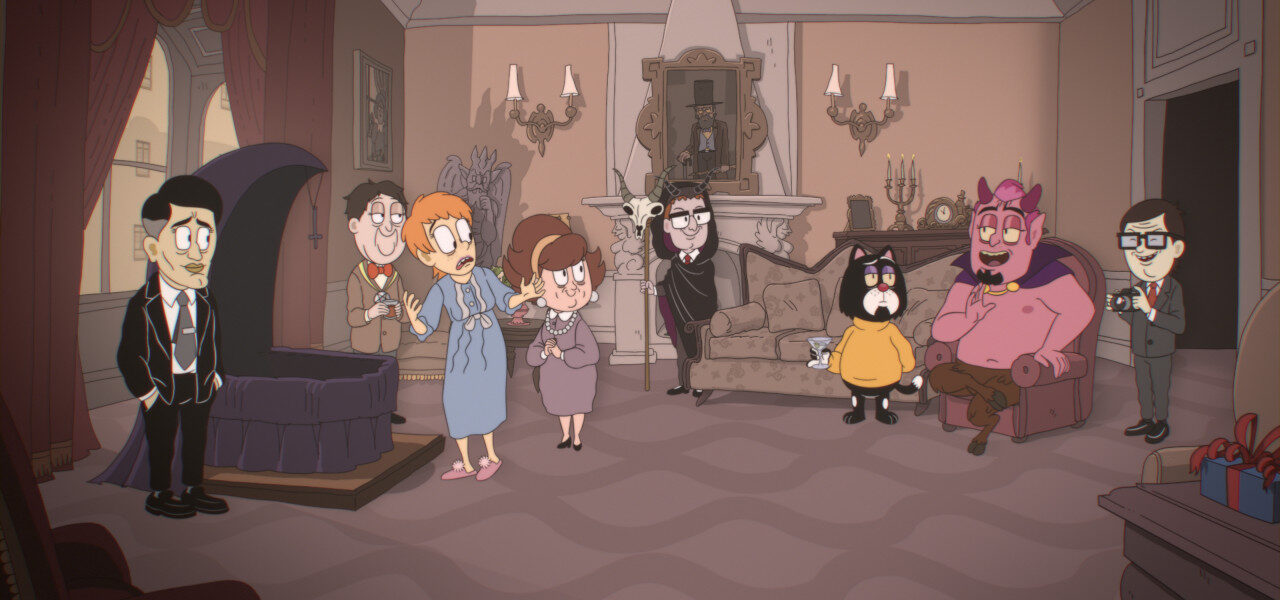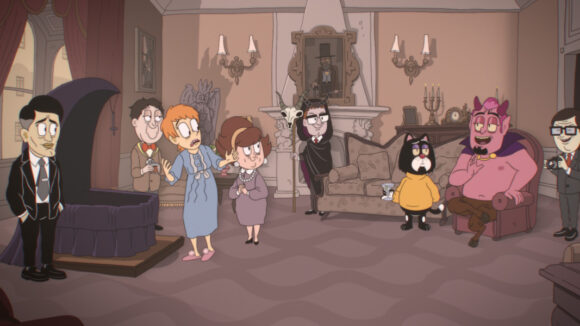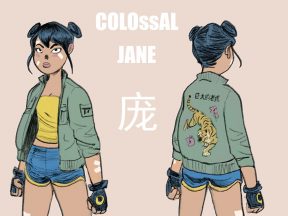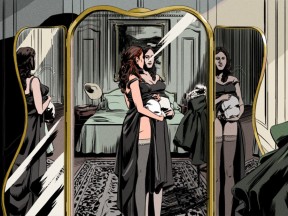

HBO Max’s ‘Poor Devil’ Could Represent A Major Step Forward For Adult Animation From Spain
Thanks to early efforts from broadcasters like Fox, Cartoon Network, and Adult Swim, animated series for adult audiences have been popular in the U.S. for decades and producers have been happy to create programming to meet the demand of audiences. They’ve also exported well, creating eager audiences around the world.
In Europe though, and especially in Spain, it has taken far longer for local animated series aimed at adult audiences to catch on. That’s not to say that adult animation isn’t a commodity in Spain, shows like The Simpsons and Rick and Morty are hugely popular there, but the country doesn’t have a tradition of producing animated series for adults.
That changed recently when HBO Max commissioned its first Spanish original animated series Poor Devil (Pobre Diablo) from creators Miguel Esteban, Joaquín Reyes, and Ernesto Sevilla, with animation handled by Granada-based studio Rokyn Animation under the creative direction of Manuel Sicilia.
The series turns on Stan, a young man about to enter adulthood who also happens to be the literal spawn of Satan. After turning 665 months old, Stan is left with only one month before he’s supposed to fulfill his destiny by plunging all of humanity into utter chaos. The problem is, Stan is more interested in becoming a Broadway star, so he takes a gap month to go live in New York and experience the life of a thespian.
While the story may be set in New York, the series itself will feel immediately recognizable to fans of Spanish film and tv, and not just because the characters speak castellano with a Spanish accent.
“Although the series takes place in New York, because that’s what the story demanded, we didn’t want to write from an American point of view,” Esteban told Cartoon Brew. “We wanted to tell the story and make the series that came naturally to us but that could be appreciated by anyone.”
To tell the story their way, the show’s creators needed a long creative leash and, according to them, Warner Bros. and executive producer Miguel Salvat were happy to oblige.
“We were able to keep it original because of the tremendous freedom given to us by Warner Bros.,” Reyes explained. “For the good of our story and our characters, it was important that they trusted us. I’m so grateful that they put their faith in us and let us make the show we wanted to make.”
To get the Poor Devil’s look just right, Reyes designed all the characters himself in a style that he’s fine-tuned over the years. When the show kicks off, there is an incongruity between the malevolence of the characters and their friendly, almost stuffed-animal-like designs that is immediately evident.
“When I was designing these characters, I wanted them to have a very friendly look at first that would adapt to the story,” Reyes explained.
For the settings and backgrounds, the creators chose to skip any type of realism and draw New York the way they recognized it from tv, as that’s how most viewers around the world would recognize the city.
One major challenge that the crew faced when developing the show was creating half-hour-long episodes. The showrunners had experience writing live-action episodes that long, but their animation work had previously been relegated to short films of five to six minutes.
“We never let ourselves think about how long the series needed to be,” Esteban recalled. “I would have been scared to think that way and the process would have been too difficult to move forward. Our approach was more straightforward. We came up with a story and characters that were interesting to us, and worked from there.”
According to Esteban, the show’s writers melded their live-action writing expertise and animation storyboarding experience, applying the visual comedy and codes that they’d learned doing short-form animation to their long-form scripts.
Although Poor Devil stands out as a Spanish novelty now, its creators are hopeful that adult animated series made in Spain will be more common in the future. They believe audiences want it, and they know for a fact that artists want to work on it.
“There aren’t a lot of productions like this in Spain, so artists were really excited to work with us,” Reyes explained. “It was a good mix of promising younger talent and established professionals who wanted to do something like this in Spain. We hope that there will be more projects like this in the country in the near future.”

.png)

